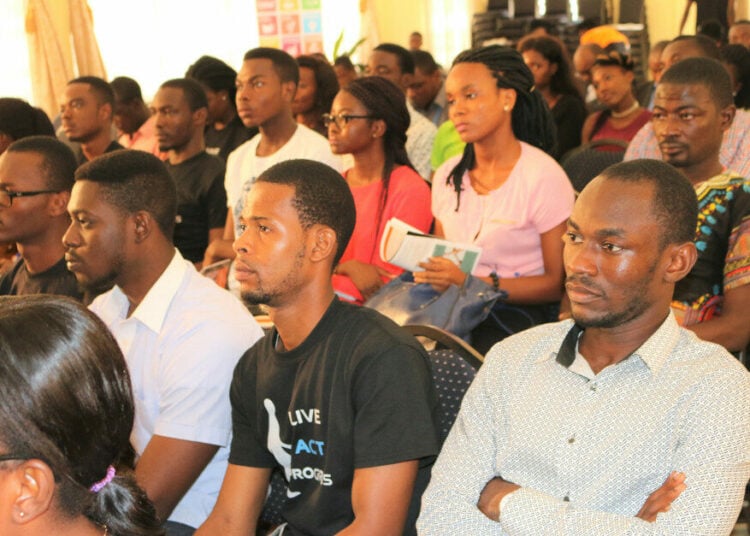The State of the Nigerian Youth Report 2025 has revealed that the high youth unemployment rate, which stood at 80 million, worsening insecurity and deepening trust deficit in governance are pushing the country’s young population into cycles of vulnerability and exclusion.
The report produced by Plan International Nigeria in collaboration with ActionAid Nigeria and other partners was presented at the Nigerian Youth Dialogue, which was organised by the House of Representatives Committee on Youth in Parliament in Abuja on Thursday, in commemoration of International Youth Day.
Presenting the report, Jonathan Abakpa, the Advocacy and Youth Programme Officer at Plan International Nigeria, expressed worry over wasted opportunities in a country where over 60 per cent of the population is below 30.
Abakpa said that with more than 200 million people and one of the largest youth populations in the world, Nigeria should be a powerhouse of innovation and growth.
However, he lamented the country’s stark realities, including unemployment, insecurity, poverty, and poor infrastructure, which continue to weigh heavily on young people.
The Plan International Nigeria Advocacy and Youth Programme Officer said the country risks losing its most significant asset unless urgent action is taken.
The report revealed that nearly 80 million young Nigerians are unemployed, representing 53% of the youth population. About 1.7 million graduates leave tertiary institutions each year, but jobs remain elusive.
“This is not just a statistic. It represents shattered dreams and wasted talent. The desperation is pushing many into irregular migration, cybercrime, and other risky coping mechanisms.
“…The tragedy of insecurity is not only the loss of lives but also the collapse of opportunities,” Abakpa said. “Over 1,500 schools have been shut down in the past two years, leaving one million children out of school. Education, which should be a ladder of opportunity, has been violently pulled away from them.”
The report also noted that violence has crippled farming communities with over 77,000 lives lost to tribal conflicts in the last five years, while 2.6 million people—mainly from farming areas—have been displaced.
According to the report, 40.1 per cent of Nigerians, over 82.9 million people, live in poverty, deepening young people’s struggle for survival.
It also identified corruption as a significant barrier to progress, noting that the menace drains resources meant for development and further erodes trust in governance.
Infrastructure gaps, ranging from bad roads and unreliable electricity to digital exclusion, were also highlighted as obstacles preventing youth from converting ambition into meaningful enterprise.
“Without these basics, youth energy cannot translate into innovation or enterprise. Their potential remains locked away by systemic neglect,” Abakpa summed up.
The report however, observed that Nigerian youth are not only victims but also innovators and change-makers.
“From tech entrepreneurship to creative industries, many are already shaping the country’s cultural and economic landscape.
“The strength of our youth lies not only in their numbers but also in their adaptability and hunger for change,” it said
The report urged the government, the private sector, and development partners to urgently expand job creation initiatives while ensuring that vocational training and entrepreneurship schemes are effectively linked to industries.
Chairman of the House Committee on Youth in Parliament, Hon. Ayodeji Alao-Akala, reiterated lawmakers’ commitment to advancing youth-focused policies, describing Nigerian youths as the nation’s future.
“As a country, we cannot afford to ignore the aspirations of our youth. They are the future of Nigeria, and our responsibility as lawmakers is to ensure their potential is harnessed for national development.
“Our task as leaders is to make sure the children of tomorrow inherit a country better than what we met, with more opportunities and less hardship,” Alao-Akala said.






